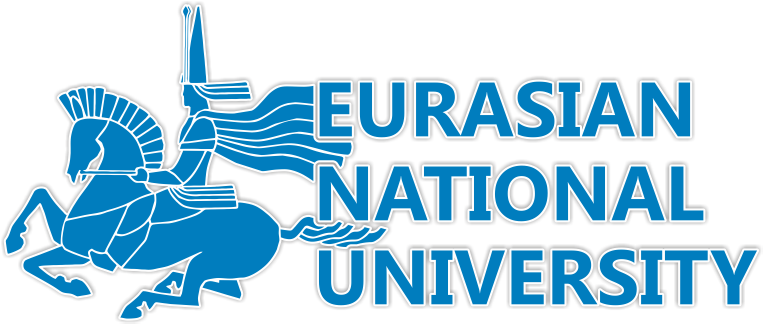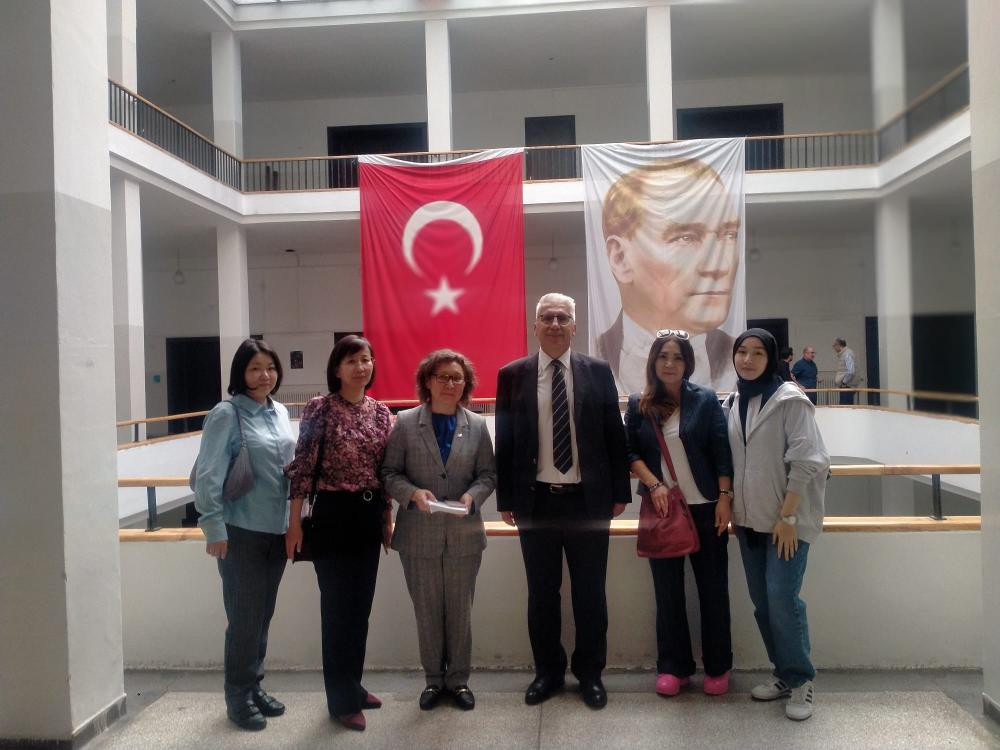From October 30 to November 04, 2023, members of the AP19680224 research group "Implementation of the Paris World Declaration on Higher Education for the XXI Century in the Republic of Kazakhstan" Tlepina Sh.V., Zukai Zh.Zh., Zhunusbekova A.Zh. visited Ankara University on a business trip.
Ankara University is a higher education institution in Turkey. Ankara University was founded in 1946. Although the first college of political Sciences, which later became a faculty, traces its history back to 1859. The University became the first higher educational institution since the establishment of the Republic, in the modern Republic of Turkey.
Being the first higher educational institution of the Republic of Turkey, the history and mission of Ankara University are largely intertwined with the history of the Turkish Republic founded by Ataturk (Mustafa Kemal – founder, reformer, first president). Ankara University was also founded on the initiative of Mustafa Kemal, and represented the revolutionary and innovative ideas of the leader: modernity, scientific, enlightenment.
The foundation of Ankara University served as proof of a comprehensive mission based on the system of modern sciences, values of democracy and education.
In 1842, the first faculty was founded – veterinary. Today Ankara University has 18 faculties, 7 technical institutes, 2 colleges, 8 master's schools and a State Conservatory.
The symbol of Ankara University is the Hatti solar disk. The symbol is associated with the Hittite civilization and with cities such as Ankara and Anatolia. For the first time it was used as a symbol of the Faculty of Humanities, and later as a symbol of Ankara University. The symbol was found during archaeological excavations in 1935. The solar disk is made of bronze and was used approximately 4250 years ago during religious ceremonies. The circle– representing the perimeter of the Disk, symbolizes both the earth and the sun. The details of the disk symbolize the fertility and development of nature.
The official order on the establishment of Ankara University dates back to 1946 and was signed by Mustafa Kemal Ataturk. The prerequisites for its creation were that in the 20-30s of the XX century, the Turkish government began to form a new elite, which was not only to work for the state, but also to share its values. The authorities needed lawyers, cultural scientists, linguists, politicians and diplomats, agronomists. A new educational institution was formed around the institutes that prepared them.
Since then, Ankara University has been continuously expanding, opening new faculties (the last one, the "Faculty of Nursing", was established in 2017). Today, more than 45,000 students, both Turkish and foreign, study within its walls. They form a special atmosphere in the Syhhiye district, where the main buildings of the educational institution are located. It has 14 faculties.
The State University offers a large academic portfolio with courses in a number of scientific disciplines, including social, medical, natural and applied sciences, as well as art and sports. It also offers undergraduate, bachelor's, master's and doctoral degree programs. Distance and continuing education courses are also available.
The university is located in the main campus near the center of Ankara, the capital of Turkey and the country's second largest city after Istanbul. The campus itself offers many learning opportunities. There is a sports center, a swimming pool and a gym, as well as a number of student societies.
In addition to 18 faculties, it is organized by nine graduate schools and various research institutes of the city.
Most of the faculties of Ankara University were opened in the middle of the last century and have a rich history and traditions. Today, the University has 18 faculties: Faculty of Agriculture; Faculty of Applied Sciences; Faculty of Communications; Faculty of Dentistry; Faculty of Theology; Faculty of Pedagogy; Faculty of Engineering; Faculty of Fine Arts; Faculty of Health; Faculty of Languages, History and Geography; Faculty of Law (Faculty of Law); Faculty of Medicine; Faculty of Nursing; Faculty of Pharmacology; Faculty of Political Sciences; Faculty of Sports; Veterinary Faculty; Faculty of Science.
There is an opportunity for foreign citizens to get an education in English. Programs of this kind are available to bachelors, masters and doctoral students. An organization for working with foreigners, the International Relations Office, has been created especially for this purpose at the university. The university has a quota system for international students.
The University provides opportunities for international integration and exchange, being in a multinational environment, living inside a closed campus, participating in cultural and sports events. He is a member of the Pan-European Bologna Process, actively develops foreign internship programs. He has been a member of the Erasmus program since 2004 and has many partnerships. Other members include IAU, EUA and UNICA.
During the business trip, a meeting was held with the Dean of the Faculty of Law. The goals for cooperation between universities and faculties were outlined. The dean told about the faculty, about its creation, about the departments, and also the members of the research group attended the professor's lecture.
The roots of the Faculty of Law of Ankara University go back to the Ankara Law School (“Ankara Adliye Hukuk Mektebi”), which was established on the initiative of the then Minister of Justice Mahmut Esat Bozkurt and inaugurated by Kemal Ataturk on November 5, 1925. The main motivation for founding the School was the urgent need for well-educated lawyers who would support and develop the legal reform directed by the Republic. Ataturk considered the foundation of the Faculty of Law as the beginning of legal reform.
The Faculty of Law of Ankara University has been contributing to the achievement of this goal for 89 years, being well aware of its historical honorable mission. Ankara Judicial School of Law is also the first higher educational institution of the republic. It was officially named the Faculty of Law of Ankara in 1927 by the decision of the Council of Ministers, which became the first milestone in the development of Ankara University, the Faculty of Law subsequently became one of its faculties in accordance with the Charter of 06.06.1948 No. 5239, entitled “Establishment of the structure of the University of Ankara", promulgated in accordance with the Universities Act of 1946.
The faculty has 2 specializations of private law and public law. In the specialization of private law there are departments: the Department of Civil Law, the Department of Civil Procedure and Law Enforcement, as well as Bankruptcy Law, the Department of Commercial Law, the Department of Comparative Law, the Department of European Union Law, the Department of Labor and Social Security Law, the Department of Maritime Law, the Department of International Private Law, the Department of Roman Law. In the specialization of public law there are departments: Department of Administrative Law, Department of Constitutional Law, Department of Criminal and Criminal Procedure Law, Department of Financial Law, Department of General Public Law, Department of History of Law, Department of International Law, Department of Philosophy and Sociology of Law.
During the business trip, the members of the research group also visited the library of the Faculty of Law. We visited several halls of the library, where many textbooks, books on national and international law were stored. The faculty publishes publications, periodicals: Faculty Journal (The Faculty Journal), Ankara Law Review, books.
There are more than 556,000 books in the libraries of the university. There are also more than 4,750 periodicals, 17,000 collections of handwritten texts, more than 30,000 scientific papers. Accessibility and use of modern technologies is one of the leading principles of Ankara University. The university has more than 50 Internet servers and more than 8,000 computers, as well as 16 computer labs available to students.


